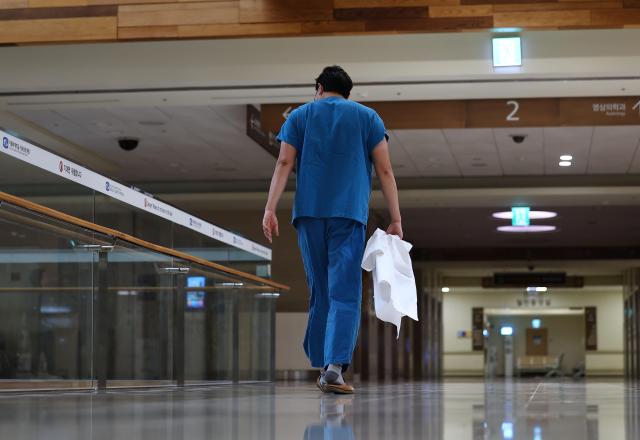
SEOUL, May 17 (AJU PRESS) - Pros and cons over a scheme to allow foreign doctors to work in Korea are heating up, after the government announced the move early this month. The government came up with the idea in a bid to address the long-term shortage of medical personnel and ease disruptions in public healthcare across the country, amid a collective strike by medical professionals.
Since February, most of medical trainees at major hospitals have resigned in protest against the government's drastic plan to increase the annual enrollment of new students in medical schools by 2,000. The months-long standoff has led to chaotic situations at major hospitals, resulting in delayed treatments and postponed surgeries.
Proponents argue that the latest scheme could solve the chronic shortage of medical professionals in key fields and fill vacancies left by the striking doctors. Opponents, however, express concerns about the possible influx of unqualified doctors, potential language barriers and cultural differences, which could undermine the quality of medical services in Korea which boasts one of the world's best healthcare services.
The Ministry of Health and Welfare plans to amend relevant laws to permit those with foreign medical licenses to practice in Korea. Currently, they are only allowed to perform some medical procedures when engaging in educational research projects or other exchange programs. The proposed revisions would expand the range of medical procedures that foreign medical practitioners can undertake in Korea.
But the move has brought up instant rejections from the medical community here. A significant number of doctors and medical personnel are raising doubts about the quality of patient care and teamwork. Patients also express concerns about their safety under the care of foreign doctors.
"The influx of foreign doctors might disrupt Korea's healthcare system due to different training programs and licensing requirements," a resigned resident surnamed Park at Yonsei University's Severance Hospital told Aju Press last week.
A patient in his 20s at Seoul National University Hospital said, "I don't know if I could trust my life to a doctor unfamiliar with the Korean health system." However, another patient in her 50s said, "Bringing in foreign-license holders seems good as it may promote cooperation with foreign hospitals."
Another concern also arises that the scheme would drive more and more Korean students abroad, seeking a shortcut to obtain a medical license more easily. In Korea, competition to get into medical schools is fierce, but it is known to be much easier in some countries like Hungary. Most of Hungarian medical schools select students based on an absolute scale, which makes admission easier than in Korea. For example, at Semmelweis University in Budapest, one of the most popular destinations among aspiring Korean doctors, nearly 20 percent of the approximately1,300 enrolled students in 2020 were from Korea.
Currently graduates from overseas must pass a preliminary test before applying for a state-certified Korean license, but the latest scheme would exempt them from this requirement, raising concerns about an increase in unqualified professionals. But the ministry has assured of a thorough screening process in hiring foreign doctors or other license holders issued by foreign countries.
Meanwhile, a Seoul appellate court last week ruled in favor of the government's push to raise the annual enrollment of new students in medical schools, paving the way for the increased quota starting from the 2025 academic year. Doctors immediately vowed to appeal the ruling and expressed their intention to continue their strike.
Copyright ⓒ Aju Press All rights reserved.



![[K-Beauty] Foreign patients flock to Korea, fueling hospital-based skincare industry](https://image.ajunews.com/content/image/2025/08/04/20250804104517173889_278_163.png)
